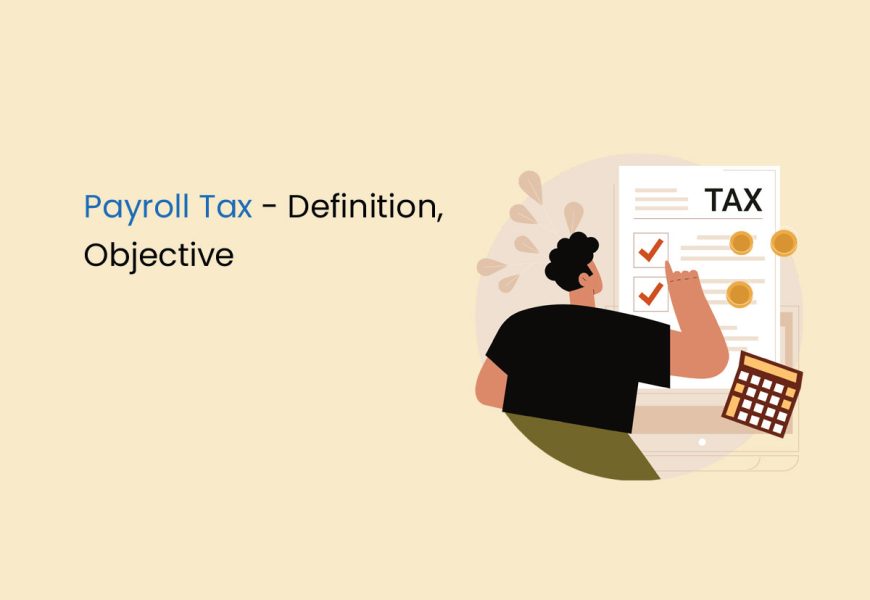Payroll tax is akin to tax deducted at source (TDS), where employers withhold a portion of an employee’s salary and remit it to the government. This article delves into the concept of payroll taxes and their implications for both employers and employees.
What is Payroll Tax?
Payroll tax is a comprehensive term referring to the taxes that employers withhold, charge, or levy on their payroll, encompassing various components like wages, gross salaries, perks, and any form of remuneration provided to employees. This tax is applied uniformly without considering individual factors such as an employee’s domicile or family status. Essentially, the employer must manage the deduction and remittance of these taxes on behalf of their employees, forming a crucial aspect of financial operations and government revenue.
Categories of Payroll Tax
Payroll tax is typically categorized into two distinct types:
- Deductions From an Employee’s Salary: In this category, employers are mandated to withhold taxes from their employees’ salaries or wages. Commonly referred to as withholding tax, this amount may cover advance payments for income tax, unemployment, and disability insurance.
- Taxes Paid by the Employer instead of Employee’s Wages: This category involves taxes paid by the employer from their funds. It is directly associated with employing a worker and can include fixed charges or be proportionally linked to the worker’s salary. These charges typically contribute to the employer’s share in social security, insurance programs, and other related aspects.
Who Needs To Pay?
Eligibility for payroll tax payment is determined by various factors, primarily involving an employer’s consideration of an employee’s salary income, income and loss declarations, investment declarations, and tax-free allowances. The calculation of annual taxable income and subsequent payroll tax is contingent on these aspects.
In India, employers are obligated to file Tax Deducted at Source (TDS) returns every quarter, providing details such as the PAN (Permanent Account Number) of the employee.
Employees enjoy the privilege of claiming several tax-free allowances, including house rent allowance, leave travel allowance, and meal allowance, all of which are exempt from tax upon submission of relevant receipts and invoices. Additionally, employees can benefit from income tax deductions by investing in eligible government securities, tax saver mutual funds, insurance products, and more.
Indian taxpayers can further claim deductions for various expenses, such as repayment of housing loans, tuition fees for children, health insurance premiums, and other eligible expenditures. Employees also have the flexibility to submit details of income from other sources, encompassing bank interest, house rent, capital gains, and any additional income earned during the financial year. Similarly, declarations of losses, such as loss from house property and capital losses, can be communicated to the employer.
The objective of Payroll Taxes
The Payroll Tax incentive scheme was instituted with specific objectives in mind, aiming to contribute to the growth and advancement of the business sector. The scheme is designed to provide rebates, which employers pay on behalf of their employees, fostering financial relief for businesses.
The key objectives of the Payroll Tax incentive scheme include:
- Promoting Business Growth: The scheme is intended to support and stimulate the growth of businesses, particularly during their initial formative years of operation.
- Facilitating Rebates: Through the provision of rebates, the scheme aims to alleviate the financial burden on employers, creating a conducive environment for sustained business operations.
- Assisting Businesses in Transition: The scheme is structured to assist businesses contemplating relocating from one location to another, providing financial support during the transition period.
- Encouraging Payroll Expansion: Businesses seeking to expand their payroll and take on the responsibility of payroll taxes can benefit from the scheme’s incentives.
It’s important to note that the payroll tax incentive scheme has specific criteria, and it does not apply to employers or groups of employers who were liable for payroll taxes in the previous year. This ensures that the benefits are directed towards businesses in need of support during critical phases of their development.
FAQs About Payroll Taxes
Is payroll tax a direct or indirect tax?
By convention, indirect taxes, such as value-added and other sales taxes, payroll taxes, and employers' contributions to social insurance, are not deducted from the computation of disposable income.
How is payroll tax calculated in India?
Any employee who earns at least ₹21,000 per month and works for an organization that employs at least 10 to 20 employees, depending on the state, qualifies for ESI benefits. The employer contribution rate is 4.75%, while the employee tax rate is 1.75%.
What are the consequences of not paying Payroll Tax in India?
Failure to pay Payroll Tax in India can lead to legal consequences. Employers may face penalties, fines, and legal actions for non-compliance with tax regulations. It's crucial for employers to adhere to tax laws to avoid such consequences.
Can employees claim deductions on their Payroll Tax in India?
Yes, employees in India can claim deductions on their Payroll Tax. They can avail deductions for various investments, expenses, and contributions made, as specified by the Income Tax Act. This helps in reducing the taxable income.
Is there a threshold income for Payroll Tax in India?
Yes, there is a threshold income for Payroll Tax in India. Individuals earning below a certain income level may be exempt from paying income tax. The threshold varies based on factors such as age, gender, and applicable tax slabs.
Also Read
- Payroll Process – Basics, Requirements, Compliances
- HR Policies – A Roadmap for Organisational Success
- What is Payroll Management System? – Definition and Importance





















